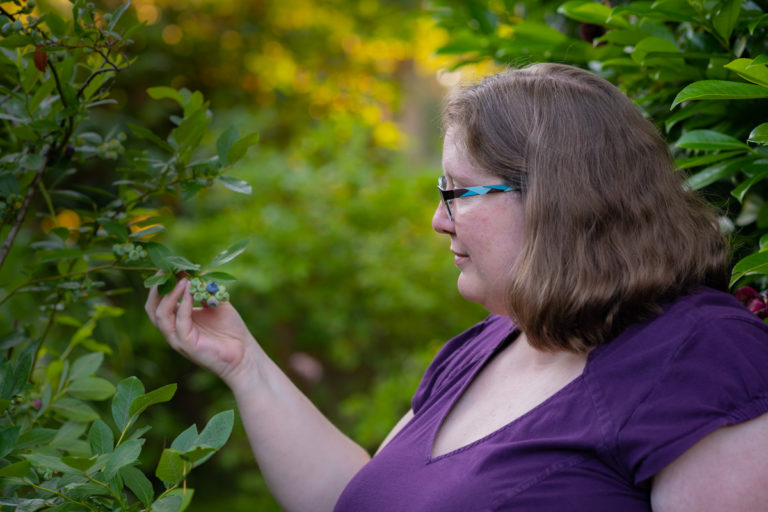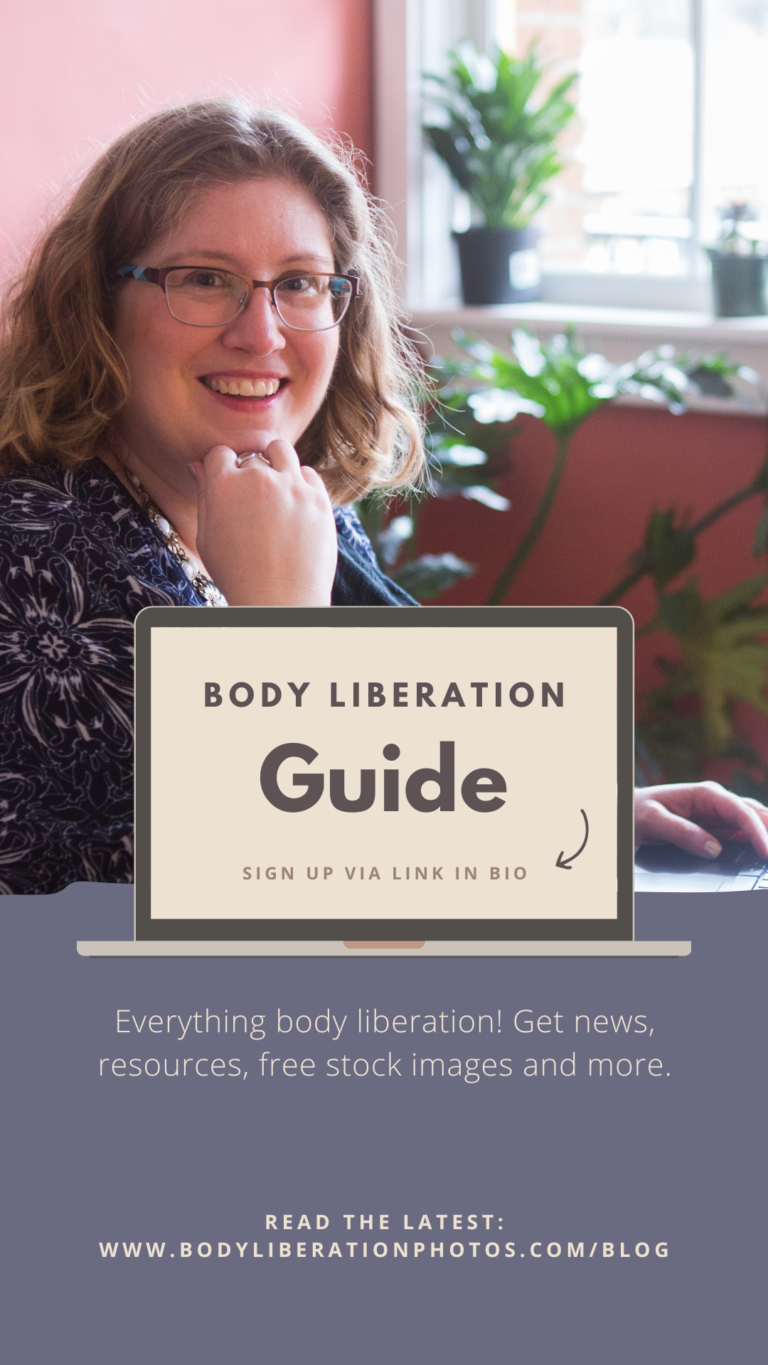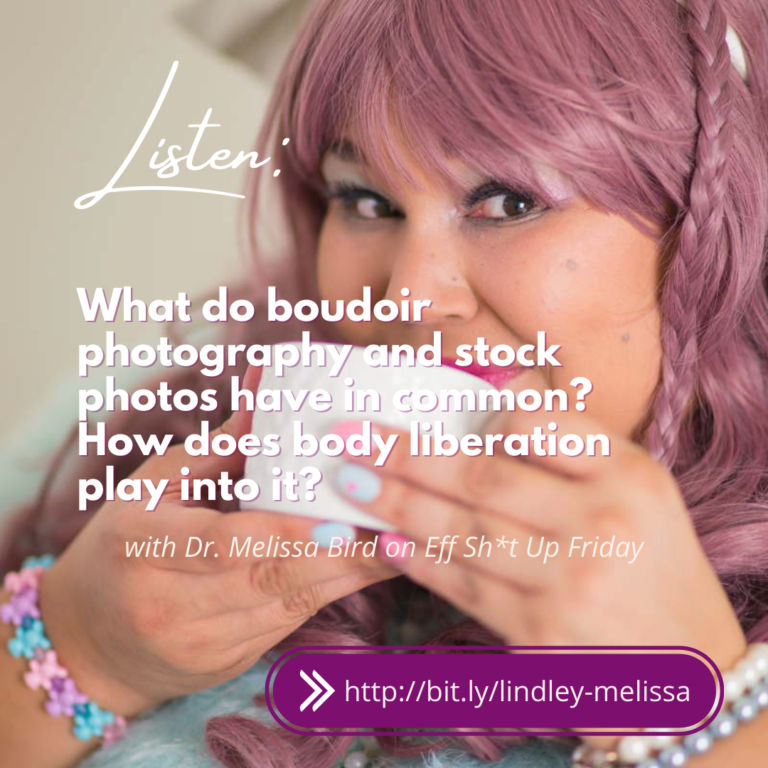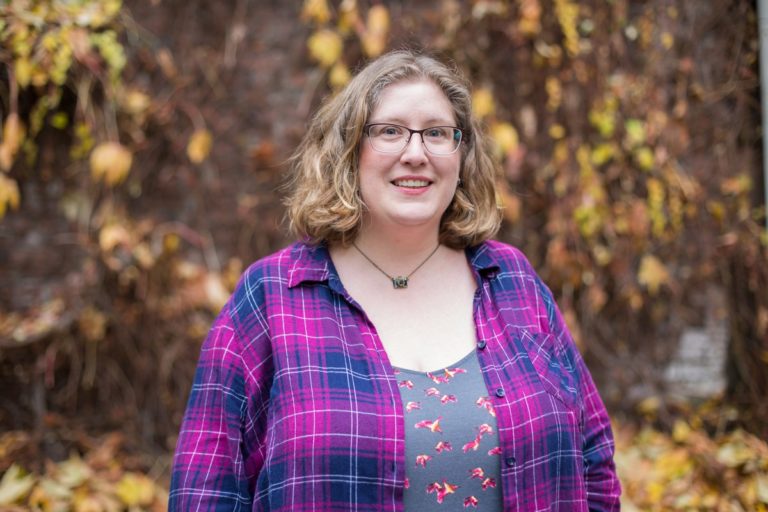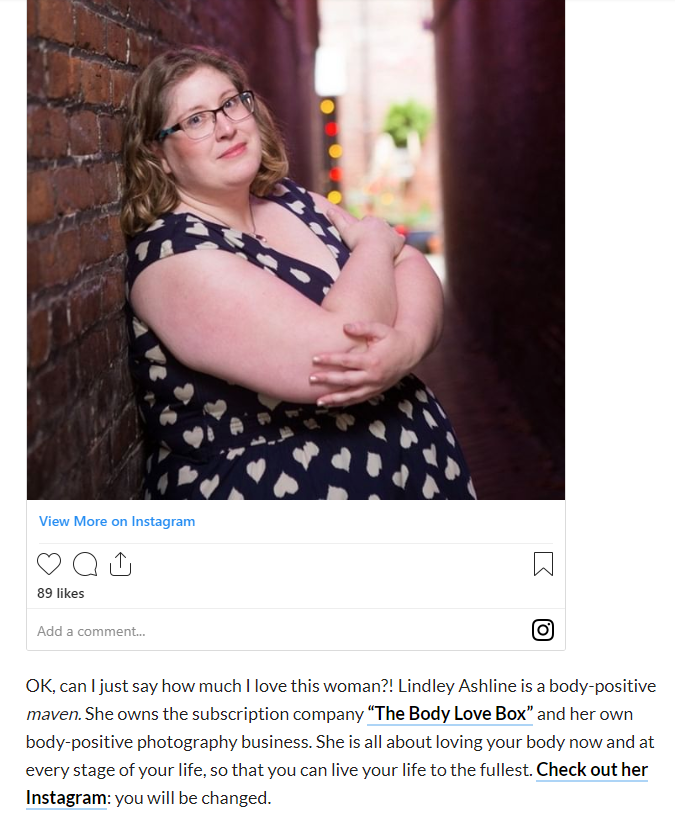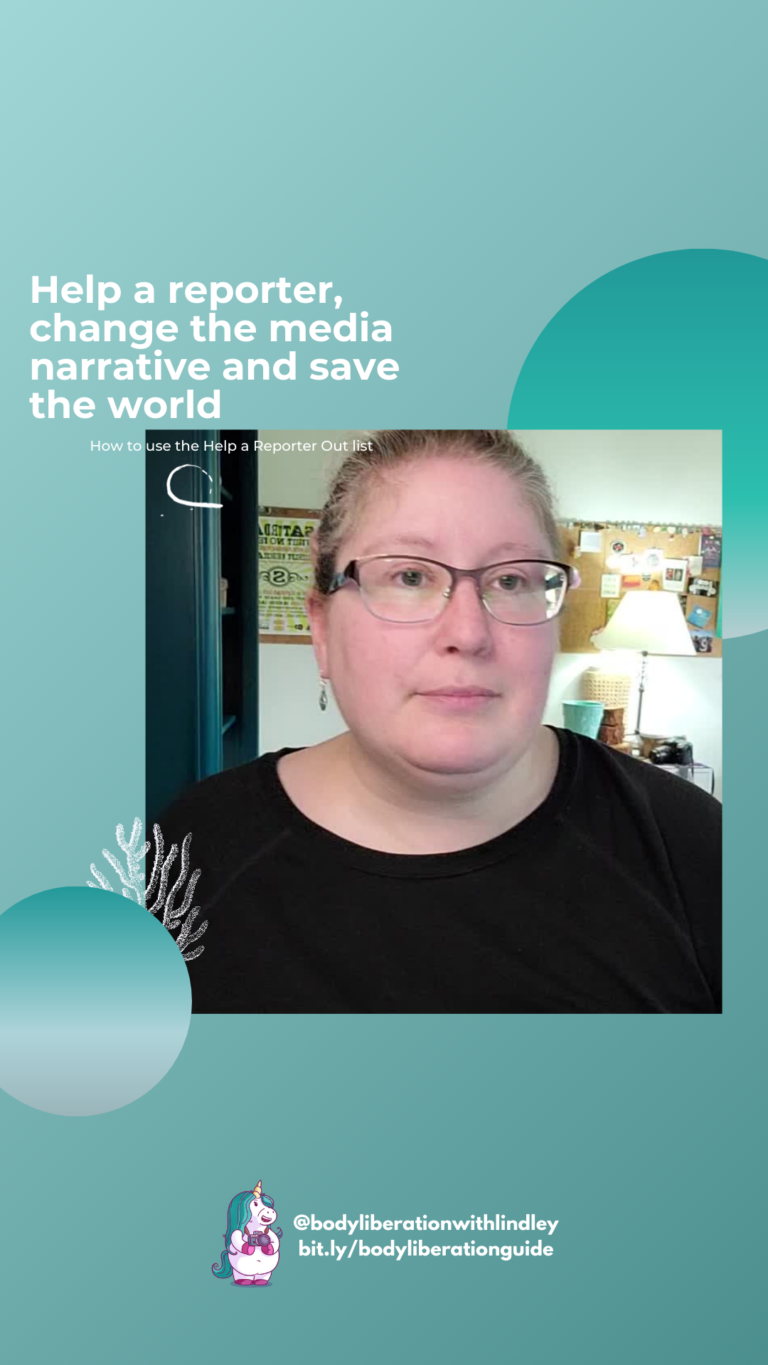“In The Grip Of Hunger” (probably the most triggering thing I’ll post in 2020)
Content note: Open bigotry; fatphobia in a medical and healthcare treatment setting. Image is Edvard Munch’s “The Scream.”
“As I sit across from my 5’ 8” 350-pound client, I am filled with discomfort and fear. In the grip of my terror, I want to fix her, to make her healthy and to protect her from our vicious fat phobic culture. I am aware of my anxiety as I fidget in my chair. Staying present is difficult. I find myself wrestling with two thoughts. I want to empower her, “Go out there and live your life to the fullest,” and I want to heal her, “Why aren’t you taking care of yourself?”
– Harin Feibish, a grown-ass professional who has somehow been allowed to have contact with fat people
This weekend, I learned one of the reasons there is such rampant fatphobia and fat hatred in healthcare. You can google “Yalom and Betty” and learn for yourself if you’d like, but I highly advise that you don’t. I won’t link or even describe it here, except to say this:
- Yalom is emeritus professor of psychiatry at Stanford University.
- His fatphobia goes beyond vile into body terrorism.
- He once treated a woman named Betty and describes her, in his book, in the most hateful terms possible.
- His book is required school reading for psychologists, psychiatrists and therapists.
- This man is widely respected in his industry.
Healthcare providers are being indoctrinated with hatred before they even leave school, on top of the naked fear and loathing our culture provides as a lifelong education in how fat folks should be viewed and treated.
Some providers are able to keep these quiet parts quiet. Others say them out loud.
In July 2020, the Renfrew Center, a chain of eating disorder treatment centers, included a horrifyingly fatphobic article* [PDF] titled “In The Grip Of Hunger: Large Women and Their Therapists” by Harin Feibish, LCSW. I’m honestly so taken aback by a therapist willing to say the quiet parts out loud like this that I’ve got nothing as far as a thoughtful, detailed response. Right now it looks more like a primal scream.
Because corporate oopsies tend to disappear from the internet once they become publicly known, I’m going to add a few thoughts of my own and then include a transcript of the piece (which you can download in PDF from Renfrew above).
» Just to emphasize: This piece was written by a credentialed professional, and her workplace thought highly enough of it to publish it as an official, approved viewpoint. Twice.
» This is not a new article. A colleague of Feibish’s claims it was written in the 1990s, and the introduction to the newsletter makes it clear that the article is being reprinted. Which means that not only was this considered okay to publish, not once, but twice (presumably with updates, unless Feibish had been already practicing for 40 years in the 1990s), it’s clear that neither Renfrew nor Feibish have overcome their prejudice enough to realize how wildly harmful and inappropriate this is.
» Though this was published in a publicly-accessible newsletter, it was clearly never intended to be seen outside provider spheres. It’s clear that neither Feibish or Renfew thought about or cared about the impact this would have on other providers — especially other providers in fat bodies — or on patients, prospective patients or members of the public who live in these despised bodies.
» Pro tip: “Taking care of yourself” is always, always code for pursuing intentional weight loss. In other words, dieting. An eating disorder treatment specialist is openly wondering why her fat client isn’t dieting.
» I’m going to do Feibish the favor of assuming that she wasn’t the one who diagnosed this patient with binge eating disorder and that the diagnosis is correct. Why am I giving her the benefit of the doubt on this? Because many, many fat folks with eating disorders are misdiagnosed with BED purely due to body size. Fatness itself is not an eating disorder, many fat folks who do have eating disorders do not have BED, and people in smaller bodies also have BED.
» Various people in thin bodies have been responding to this piece with, “I appreciate her honesty.” How would you appreciate her honesty if you lived in a body so loathed that people need to do grounding exercises when you walk in the room? The only people who should be exposed to Feibish’s honest feelings on fat are her supervisor and therapist.
» Many patients at eating disorder treatment centers in the U.S. pay out of pocket for treatment. Roberta may have been paying tens of thousands of dollars to be treated this way.
» We’re not stupid. We can tell when you’re uncomfortable with our bodies, and we can certainly tell when you’re so disgusted you can hardly be in the same room with us.
» Is it any wonder that people who live in a world that treats them like this will amputate perfectly healthy organs (i.e., have weight-loss surgery) so that they might one day be treated like humans?
» Listing the height and exact weight of a person as the first thing you see is an excellent way to encourage readers, many of whom can’t even visualize what 350 pounds looks like, to dehumanize this person right off the bat. (Also, since 350-pound patients are vanishingly rare in ED treatment — we can’t even get diagnosed most of the time — how anonymous is this client, really? Not very.)
» Fat people do not exist as a (paid!) learning exercise for thin people.
» There is already harm being done by Renfrew’s publication of this article. Fat people I know who’ve seen it have said that they’re now even more hesitant to seek healthcare of any kind, knowing that not only will most of their providers think this way about them, but it’s even considered acceptable to say so right out loud.
» Can you imagine sitting in a room where a trained healthcare provider with a degree has to do grounding exercises to conceal her loathing of you? Can you imagine never knowing when you’ll encounter this, but knowing it will be often? Can you imagine encountering this when you are at your lowest and most vulnerable, and are seeking mental healthcare treatment? Can you imagine encountering this every day of your life?
» The author of this piece apparently did Renfrew’s “body image” programming and was regularly allowed and encouraged to be around fat folks. (She is no longer with Renfrew today, but is in private practice.) People she’s physically, viscerally terrified of. After 40 years of practice.
The following is an excerpt from Renfrew’s summer 2020 newsletter. Remember those content notes above? They still apply.
“As I sit across from my 5’ 8” 350-pound client, I am filled with discomfort and fear. In the grip of my terror, I want to fix her, to make her healthy and to protect her from our vicious fat phobic culture. I am aware of my anxiety as I fidget in my chair. Staying present is difficult. I find myself wrestling with two thoughts. I want to empower her, “Go out there and live your life to the fullest,” and I want to heal her, “Why aren’t you taking care of yourself?”
Even after 40 years of working in the field, I still must see through the ubiquitous messages of our diet obsessed culture and the prevalent disdain for fat people and trust my experience. I have to refocus on the present moment and maintain a connection with my client. Once I am aware I have left emotionally, I intentionally use my body awareness to re-ground myself. I begin by noticing my breath and using it to help me slow down. I draw my attention back to feel my body on the chair, to feel the sunlight coming in the window, and to feel the solidness of the floor beneath my feet as I rejoin my client. Despite my awareness and training, so many thoughts and feelings flood me, I know I must continue to explore my reactions and prejudices at a more appropriate time. I smile and warmly greet Roberta.
Roberta realizes she uses food to numb her feelings and avoid conflict at her job and in her relationships. Her size, lack of mobility and isolation were some of her reasons for leaving her job, promising to return to work and make new friends when she lost weight. I questioned her willingness to put her life on hold. She wants a magic potion, a quick fix and an excuse not to feel. We reviewed her weight and diet history in great detail, and we agreed her previous efforts to lose weight by restricting and dieting were fruitless and followed a self-recriminating diet, binge, shame cycle.
During one session, she stated she made a decision, but was wary to share it with me. She finally blurted out, “I’m having gastric bypass surgery as soon as possible.” Looking away she quietly said, “please do not say anything to dissuade me.” She was convinced and determined that this time things would be different.
Roberta obviously wanted my support, but knew I had mixed feelings about the procedure. It was imperative for me to create a safe enough space and to patiently, without interjecting my beliefs, discuss why and how she believed this procedure would be different. I encouraged her to explore her old patterns of disordered eating that keep her stuck in a relentless diet-binge cycle. I asked her to slow down and listen to what she truly hungered for, in order to guide both of us through this difficult process.”
“It’s horrific that not only did the author write this out and reread it and think it was awesome and submitted it to be read by others….a leading ED center also read it and thought it was awesome and sent it out uncritically. And that’s after she regularly disassociated in appointments and worked through her own fatphobia with Roberta, while Roberta paid her for it.
I’m a superfat person, both shorter and heavier than Roberta, so likelier even more horrifying to any HAES expert I subject to being in the same room as me. I’m currently looking for a therapist and was already anxious about it because I was scared of any new therapist being fatphobic towards me and insisting I’d lose weight. Shit, I hadn’t even thought of them disassociating in terror and needing to kick off coping techniques at the sight of me, so thanks for that rich new layer to the nightmare, thinking being around me could trigger my provider. That I could be paying for their time and being vulnerable while they’re working down panic instead of holding space and helping me with the expertise I sought them out for.
You publishing this not only confirmed this fear, but confirmed that even HAES strongholds cosign on this view, and even find it newsworthy and worth endorsing and sharing.”
– Commenter Brandy on Renfrew’s Facebook post publicing the newsletter
Back to Feibish:
“Roberta adamantly resisted exploring her hungers. She and I both knew how fearful she was to let go of her wishful thinking, believing if she were thin, her life would be perfect, as well as her harsh punishing self talk that she was unacceptable and unlovable. Restricting, overeating and self blame had become a way to organize her life. Staying out of touch gave her a way to distract herself from her needs and wants. She resisted exploring new possibilities. I suggested that understanding her hungers and tolerating her feelings might give her a chance to find balance, allowing more time and energy to know who she was and what she desired. This new sense of self could foster more self- compassion and begin to build self-respect, while allowing her to entertain a feeling of confidence essential to feeling lovable.
I struggled with my frustration. I wished Roberta would use therapy to address the issues that caused her unhealthy relationship with food and her body, rather than opt for a potentially dangerous quick fix. I hoped our relationship and my ability to empathically challenge her would provide a safe space for Roberta to trust and heed her internal cues and wisdom.
As a woman and therapist, it is imperative that I continue to challenge my own beliefs and explore my own hungers. Just as I encourage my clients to stretch and to experiment with new behaviors and possibilities, I, too, must be willing to explore my needs and desires and to understand what holds me back. I was open to experimenting with my eating, listening to my body’s cues to eat when I was physically hungry and stop when I was satisfied and comfortable. I had to figure out how and why I was willing to make the transition from a punitive, shaming, and restrictive yet alluring and familiar diet mentality to a radical, unpopular and often ridiculed non-diet model.
I realize my clients and I are often in a parallel process. Understanding that, I stay curious and focused on their story and their work. Using our authentic and trusting relationship, I work hard to model self-care, self-compassion and body acceptance.
I remember attending my first Geneen Roth workshop in the 1980’s, I absorbed every word she said and felt like I was really getting it. When I met her, I displayed my true ambivalence when I remarked, “I think I can really do this… after I lose 20 pounds!”
Little did I know that the non-diet approach was also a very challenging process consisting of mindfulness, intuitive eating, self-trust and self acceptance which proved to be much more arduous than following a diet. As much as I originally believed in and touted this concept, I had my fears and doubts. I was at a crossroads. Was I willing to give up dieting? Like every large client and every woman, I needed to really understand what I hungered for. After much soul searching, I knew what I needed: I had to quiet the noise in my head and stop tormenting myself. I wanted peace. I knew if I could achieve greater balance in my life, I would have the time and energy to look inward, connect with myself, and nurture who I wanted to be, while also creating more authentic relationships with my clients.
As one of my clients said, “I crave my fullness, my potential, I want more joy and fun back in my life…I want to move through the world with greater ease!” This meant resisting the never ending barrage of insidious and seductive cultural messages. It felt very risky to trust the body I have been taught to hate unconditionally on the one hand and to accept unconditionally on the other. I have to be willing to challenge my terror and accept the possibility that I might not have a smaller body. I must be willing to trust myself and to facilitate that leap of faith.
It becomes obvious that the search to find what we are all hungry for is a significant part of the therapeutic process for all women, myself included. The journey is both an exciting and terrifying process, but once my clients and I recognize what we truly need and want, we can begin accepting ourselves with compassion and strength. Choosing to call a truce, to make peace with our bodies can open the door to discovering a more authentic self, willing and eager to eat when hungry and stop when satisfied.”
“As a client, I want to feel heard and accepted so that I can focus on my healing and not be re-traumatized by the therapist who is supposed to help me. I want my therapists to know that their words are meaningless when it is clear they have disdain and fear of my body and that their judgment is obvious even when they think they are hiding it. I am here to remind therapists- especially eating disorder therapists- to breathe and be present with their desires and hungers in their own therapy so that they can nurture and support their fat clients without harm.”
– Rachel Millner, in response to this piece
And once again, back to Feibish:
“As a therapist, I want my clients to feel heard and accepted so they can give up the shame of unsuccessful dieting and embrace the arduous journey of self discovery. I am here to nurture and support, to breathe and be present, even when Roberta’s desires and hungers lead her to choose gastric bypass surgery.”
Harin Feibish, LCSW, is a nationally recognized authority on the treatment and prevention of eating and body image disorders. She created and formerly directed “Body Balance” at The Renfrew Center in Philadelphia. With 40 years of learning and experience, Harin integrates a myriad of modalities and theoretical perspectives in her work with families, groups and individuals. Presently, she maintains a private practice with Building Bridges in Media, PA, and in the Mt. Airy section of Philadelphia.
Feel free to contact Renfrew and let them know how this article affected you, whether you’re in a larger or smaller body (or from a provider standpoint).
*As of July 26, Renfrew’s PDF is available at its original location linked above, though they promptly removed it from the website when they started getting bad publicity for it. An archival copy is located here on my own server for accountability.
Update: On July 26, 2020, Renfrew released this statement:
“UPDATE 7/26/2020 at 3:24PM EST: We are committed to doing better. Doing better means acknowledging mistakes especially when those mistakes can harm the people who have been marginalized and underrepresented in our field.
We made a mistake in republishing this 14 year old article without context or nuanced examination of where the field was at the time and more importantly where the field has evolved to today. Without this context it is not an accurate representation of Renfrew’s perspective as an organization or the individual clinicians who do this important work.
We apologize to our readers and also Harin whose article was presented in such a way that it did not clearly indicate the time period within which it was written and did not present her current perspective which may have evolved over time.
We have made the decision to remove the article from the issue. We remain committed to examining issues of social justice and the evolving knowledge of the role of implicit bias in perpetuating unhelpful narratives about people who are affected by eating disorders. We also acknowledge the emotional labor of the comments and recognize the important conversations that are happening – posts and comments will not be deleted. We appreciate those who have responded, holding us accountable and thoughtfully elevating the conversation so that we truly can do better.”
It’s nice to see an apology to those Renfrew has harmed here, though apologizing to Feibish and not the hundreds of people Feibish has harmed (while at Renfrew or otherwise) is deeply problematic. What I’d really like to see is an acknowledgement of how wildly inappropriate this article was when first published (in 2006! Not 1906!), exactly how Renfrew’s newsletter review practices will change to prevent this from happening again, and how Renfew intends to change its internal culture to eliminate the kinds of attitudes that think this is okay.
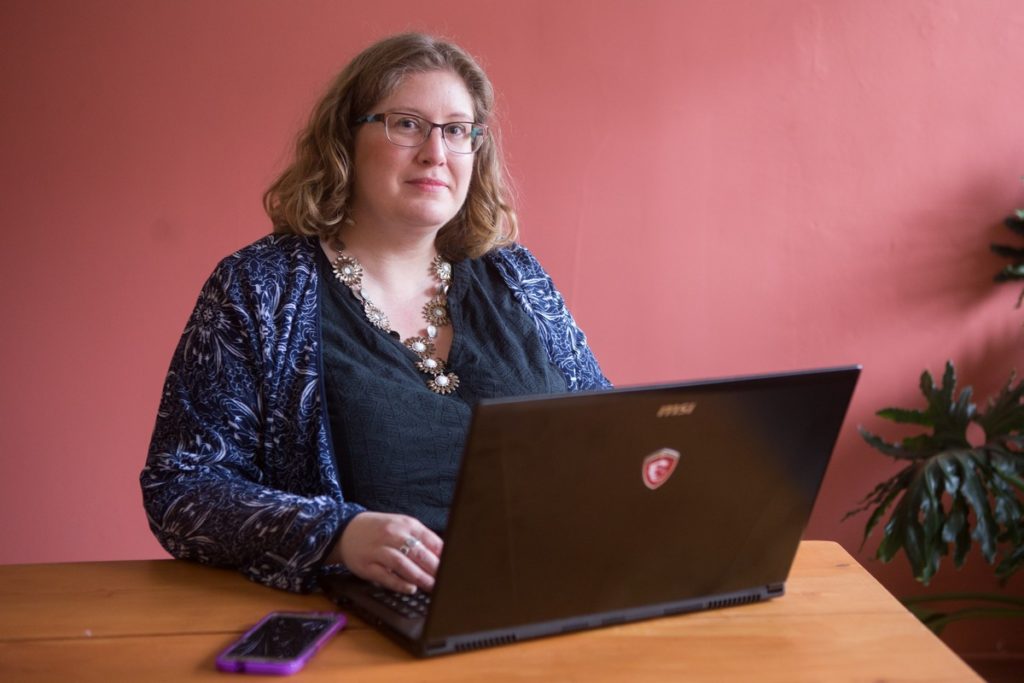
Let’s dig deep.
Every Monday, I send out my Body Liberation Guide, a thoughtful email jam-packed with resources for changing the way you see your own body and the bodies you see around you. And it’s free. Let’s change the world together.
Hi there! I'm Lindley. I create artwork that celebrates the unique beauty of bodies that fall outside conventional "beauty" standards at Body Liberation Photography. I'm also the creator of Body Liberation Stock and the Body Love Shop, a curated central resource for body-friendly artwork and products. Find all my work here at bodyliberationphotos.com.



